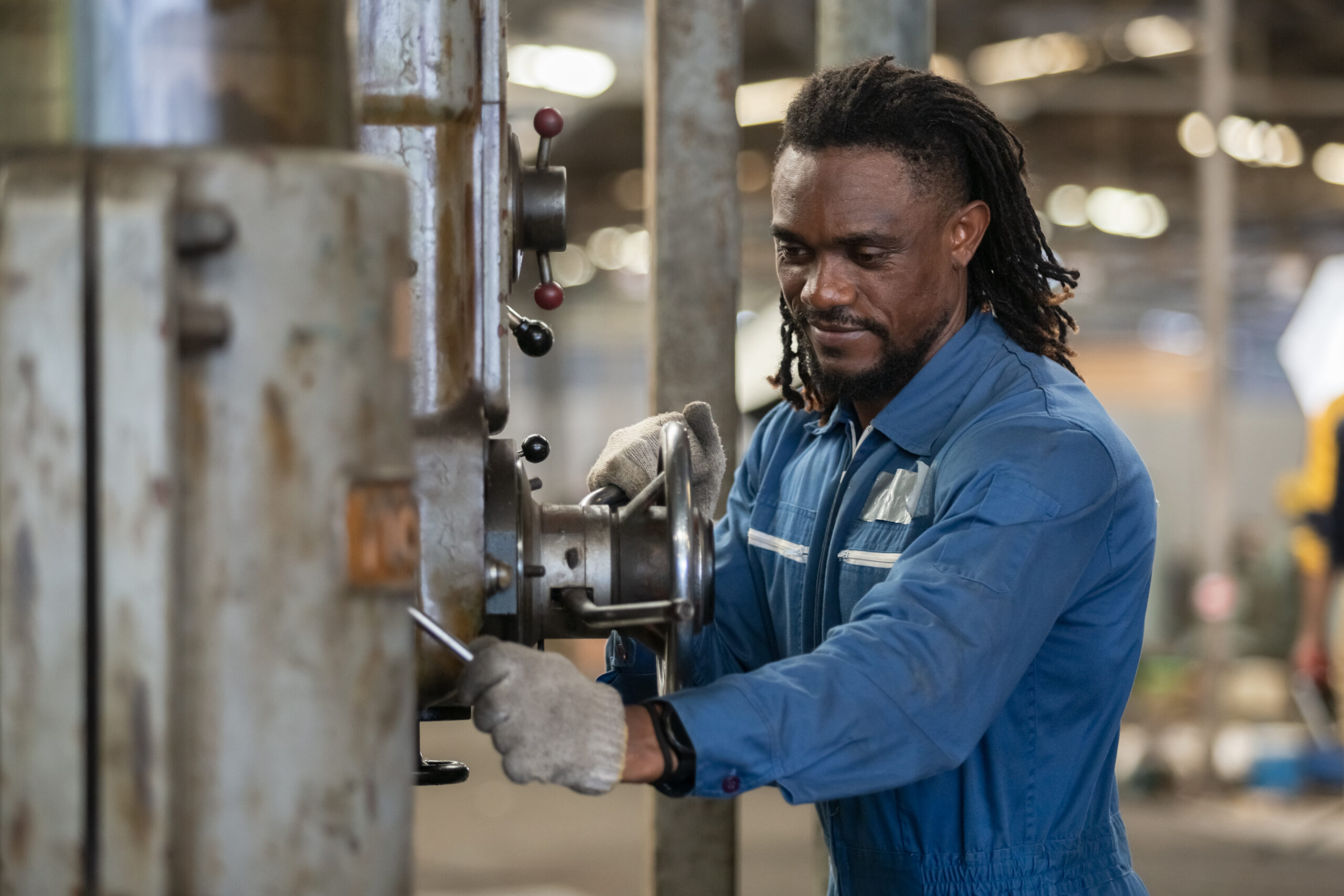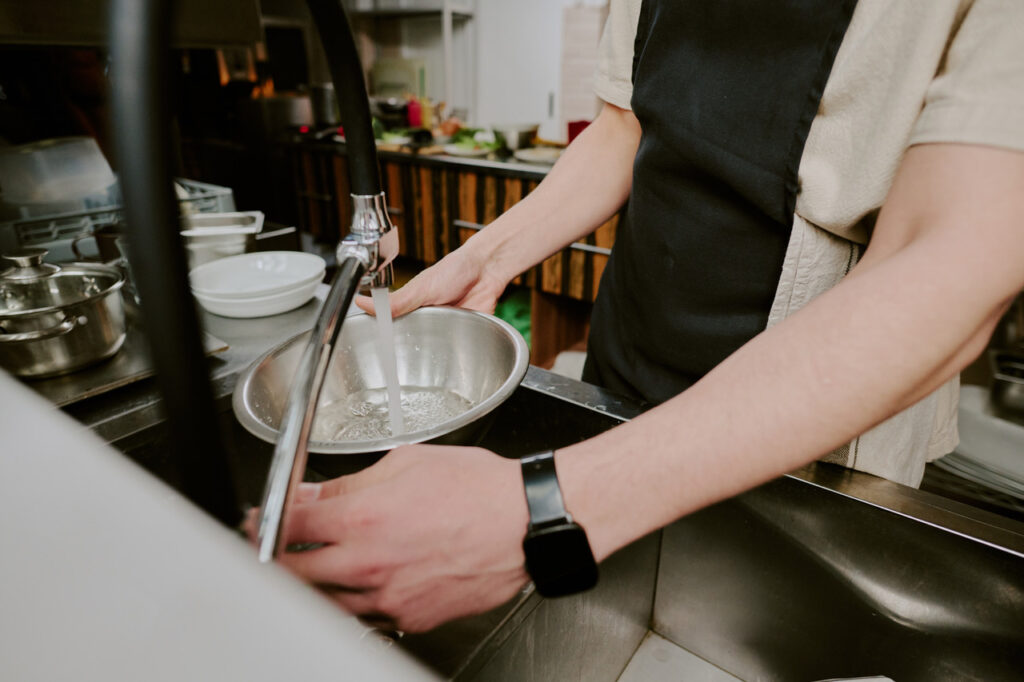Running a bustling commercial kitchen is no small feat. With the constant stream of food prep, dishwashing, and cleaning, your kitchen drain sees a massive amount of activity every day. Left unchecked, this traffic can lead to messy, inconvenient, and costly blockages that disrupt your operations.
The good news? With the right strategies, you can prevent major drain issues and keep everything flowing smoothly. Below are five key tips to maintain a healthy kitchen drain in your high-traffic commercial kitchen.
Tip 1: Train Staff on Proper Waste Disposal
When it comes to preventing drain blockages, the habits of your kitchen staff matter more than you might think. Every scrape, rinse, and wash impacts your plumbing system. Proper waste disposal training for your team is crucial to avoid buildup and clogs.
What Shouldn’t Go Down the Drain?
Make it clear to employees what doesn’t belong in the drain. Grease, oils, and food scraps are the top culprits behind clogged kitchen drains. Despite their liquid state, oils and grease solidify as they cool, sticking to the walls of your pipes. Over time, this creates significant blockages.
Best Practices to Follow
- Scrape Plates First: Equip staff with scrapers or pre-rinse stations and encourage them to remove food scraps before rinsing dishes.
- Dispose of Grease Properly: Provide designated containers for used cooking oils and educate staff on safe disposal techniques.
- Avoid Large Food Particles: Encourage everyone to avoid letting leftover food (even rice and pasta!) go into sink drains.
A little staff education goes a long way toward saving you from a costly clog later.
Tip 2: Install Grease Traps and Maintain Them Regularly
Did you know that grease buildup leads to some of the most common blockages in kitchen drains? Installing grease traps is a game-changer for commercial kitchens. These handy devices act as filters, capturing fats, oils, and grease before they enter your drain system.
The Key to Success? Regular Maintenance.
A grease trap isn’t a set-it-and-forget-it solution. To work effectively, these traps require regular cleaning to prevent overflows or blockages.
- Have your grease trap professionally cleaned according to your kitchen’s traffic level (for high-volume kitchens, monthly cleanings might be necessary).
- Perform visual checks on the trap to monitor for signs of buildup or improper functioning.
Taking these proactive measures will ensure your grease trap does its job and keeps your pipes grease-free.
Tip 3: Implement a Routine Drain Cleaning Schedule
Think of professional drain cleaning as preventative health care for your kitchen drain. Just as your car needs regular oil changes to continue running smoothly, your drains benefit from proactive maintenance.
High-traffic kitchens accumulate debris more quickly than low-traffic facilities. Even with grease traps and cautious staff, grime can build up inside the pipes over time.
Consider Scheduling Drain Cleaning Services
Partnering with professionals for periodic drain maintenance ensures your system stays clean and functional. Services like hydro jetting (using high-pressure water jets to clear debris and grease) can remove stubborn buildup before it becomes a bigger problem.
Set up a cleaning schedule tailored to your kitchen’s needs—for instance, every three to six months, depending on your usage. This small investment can save you from expensive emergencies in the long run.
Tip 4: Monitor for Early Signs of Drain Issues
Your drain won’t block overnight. Blockages typically develop over time but leave warning signs along the way. Identifying small issues before they escalate can help you avoid disruptions and costly repairs.
Look Out for These Indicators
Encourage your staff to watch for early signs of trouble, like:
- Slow Drainage: Water sitting in the sink instead of draining quickly.
- Gurgling Noises: Air trapped in pipes signaling a blockage is forming.
- Unpleasant Odors: Foul smells could indicate decomposing food or grease in the pipes.
The moment you notice these symptoms, take action. Quick intervention can prevent a minor problem from becoming a full-blown crisis.
Tip 5: Work with Professional Drain Technicians
Sometimes, no amount of DIY maintenance can address tough drain problems. That’s why building a relationship with experienced drain technicians is key for any high-traffic kitchen.
Professional drain technicians have the tools and expertise to:
- Perform camera inspections to locate hidden blockages.
- Use hydro jetting machines to clear even the most stubborn buildups.
- Provide tailored advice for long-term drain health based on your kitchen’s unique activity level.
Why Routine Maintenance Matters
Working with drain specialists isn’t just about solving emergencies. Scheduling regular maintenance checks ensures your system stays in top condition year-round.
Keep Your Kitchen Running Smoothly
By implementing these five tips—from staff education to regular professional cleanings—you can avoid unnecessary downtime and keep your operations running like clockwork. Looking for expert help to maintain your kitchen drain? Contact Drain Tech, your trusted partner in keeping commercial kitchens free-flowing. We’ll handle your tough clogs while you focus on serving your customers.



